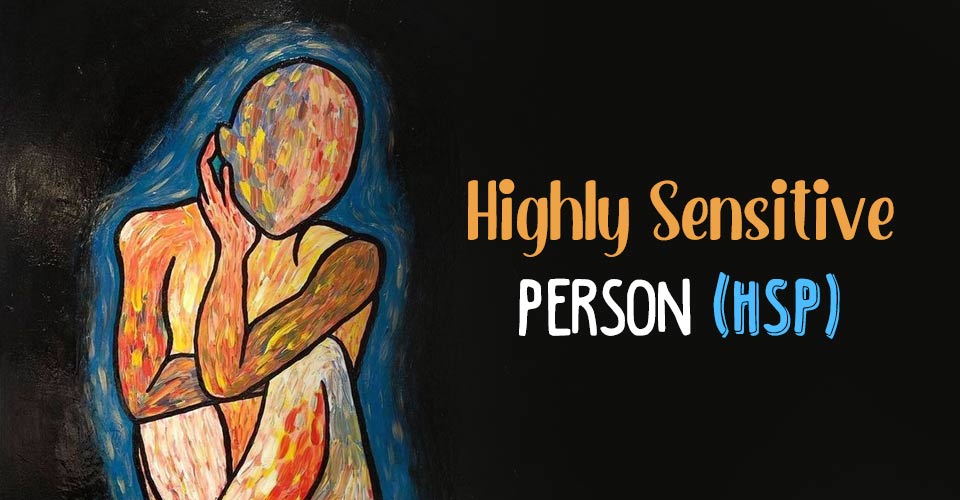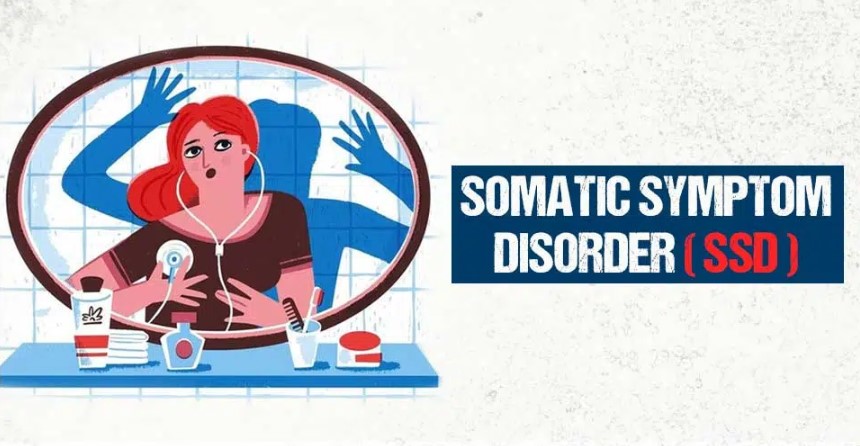Hypnosis refers to a trance-like mental condition that can be characterized by an intense concentration, decreased peripheral awareness, heightened suggestibility, relaxation, and imagination. It can also be used as a genuine psychological therapy process by an expert.
What Is Hypnosis?
It refers to an altered state of consciousness and a process to induce a trance-like psychological state with elevated suggestibility, awareness, attention and concentration. It is also known as hypnotic trance, hypnotic suggestion or hypnotherapy. Although misinterpreted as a state of sleepiness, a hypnotic state is mainly a mental state of heightened suggestibility and focused or hyper-awareness. Hypnosis is often misunderstood due to misinterpretations in stage shows, but it is widely used as a treatment and therapy option for overcoming different mental disorders [mfn] Huynh, M. E., Vandvik, I. H., & Diseth, T. H. (2008). Hypnotherapy in child psychiatry: the state of the art. Clinical child psychology and psychiatry, 13(3), 377–393. https://doi.org/10.1177/1359104508090601 [/mfn] .
Hypnotherapy is generally performed under the guidance of a licensed hypnotherapist or hypnotist who uses deep relaxation techniques, verbal repetition, mental imagery and suggestions to help a person change their thought process and mindset in a therapeutic manner. It can be helpful in coping with stress, anxiety [mfn] Vickers, A., Zollman, C., & Payne, D. K. (2001). Hypnosis and relaxation therapies. The Western journal of medicine, 175(4), 269–272. https://doi.org/10.1136/ewjm.175.4.269 [/mfn] , negative thoughts and unhelpful behaviors.
The process starts when a hypnotherapist puts the patient in a trance-like state through deep relaxation and making them open to positive and transformative suggestions. However, some experts consider it as an imaginative role enactment or a form of placebo effect. A 2019 study [mfn] Williamson A. (2019). What is hypnosis and how might it work?. Palliative care, 12, 1178224219826581. https://doi.org/10.1177/1178224219826581 [/mfn] , describes it as “a waking state of awareness, (or consciousness), in which a person’s attention is detached from his or her immediate environment and is absorbed by inner experiences such as feelings, cognition and imagery.” However, it should be noted that this altered state is separate from other states of consciousness, like meditation, deep relaxation, sleep or wakefulness. This hypnotic trance is marked by certain reactions like –
- Heightened suggestibility [mfn] Lynn, S. J., Green, J. P., Kirsch, I., Capafons, A., Lilienfeld, S. O., Laurence, J., & Montgomery, G. H. (2015). Grounding hypnosis in science: The “New” APA division 30 definition of hypnosis as a step backward. American Journal of Clinical Hypnosis, 57(4), 390-401. https://doi.org/10.1080/00029157.2015.1011472 [/mfn]
- Altered perception of time
- Intense inward focus
- Decreased peripheral awareness
- Regression to an earlier or younger age
- Selective amnesia
Studies [mfn] Häuser, W., Hagl, M., Schmierer, A., & Hansen, E. (2016). The Efficacy, Safety and Applications of Medical Hypnosis. Deutsches Arzteblatt international, 113(17), 289–296. https://doi.org/10.3238/arztebl.2016.0289 [/mfn] have shown medical hypnosis is an effective and safe complementary treatment technique that can be used for treating different conditions and bringing desired behavioral changes. It should be noted that some people may be harder to hypnotize than others.
Understanding Hypnosis
Hypnosis or hypnotism recently has become more popular as an alternative treatment for several disorders, though it has existed since around the 18th century. It is considered a trance-like mental state in which people experience heightened focus, concentration, and suggestibility. This therapy is generally done with the help of a mental health specialist by using verbal repetition and mental images.
Hypnotic induction includes focusing on attention and imaginative involvement to the point where the imagination feels like reality. A hypnotic state allows an individual to feel mostly sleepy and zoned out, while in reality, they experience hyper-awareness. Though there are many myths and misconceptions about this process, it is purely a therapeutic process that can be used to help you cope with any kind of anxiety or pain effectively. It is a naturally occurring state that involves two main elements:
1. Induction
Hypnotic induction refers to the first suggestions transmitted during hypnotherapy. But, the components of it are still a matter of debate.
2. Suggestions
Research [mfn] Haggard, P., Cartledge, P., Dafydd, M., & Oakley, D. A. (2004). Anomalous control: when ‘free-will’ is not conscious. Consciousness and cognition, 13(3), 646–654. https://doi.org/10.1016/j.concog.2004.06.001 [/mfn] says that suggestions are typically expressed to elicit seemingly involuntary responses from the participants, who do not believe that they have much control over the situation. According to a 2017 study [mfn] Terhune, D. B., & Hedman, L. (2017). Metacognition of agency is reduced in high hypnotic suggestibility. Cognition, 168, 176–181. https://doi.org/10.1016/j.cognition.2017.06.026 [/mfn] , highly suggestible people tend to have a reduced sense of agency while under hypnosis.
History Of Hypnosis
The word “Hypnosis” is derived from the ancient Greek word “Hypnos” which means sleep. A 1993 research paper [mfn] Gravitz M. A. (1993). Etienne Félix d’Hénin de Cuvillers: a founder of hypnosis. The American journal of clinical hypnosis, 36(1), 7–11. https://doi.org/10.1080/00029157.1993.10403033 [/mfn] claims that it was first coined by a Frenchman, Etienne Félix d’Hénin de Cuvillers in the 19th century. He enlightened the role of suggestions in the mind and the psychological and behavioral processes that occur during a person’s hypnotic state. Cuvillers defines it as a special psychological state with certain important psychological attributes. The history of hypnotism involves ancient culture and the practice of magic, sorcery, and medicine.
Meanwhile, its scientific history began in the late 18th century with Franz Mesmer [mfn] Ellis H. (2015). Franz Mesmer: pioneer in the treatment of functional disease or charlatan?. British journal of hospital medicine (London, England : 2005), 76(3), 170. https://doi.org/10.12968/hmed.2015.76.3.170 [/mfn] , a German physician, who used hypnotism to treat the patients of Vienna and Paris. He claimed to introduce the existence of an invisible fluid called “animal magnetism” that flows between people, animals, plants, and things. However, his practices gave hypnosis a bad start. Several prominent clinicians used hypnotherapy without understanding its nature until the middle of the 19th century, when a Scottish surgeon named James Braid, who is also acknowledged as the pioneer of hypnotherapy [mfn] Radovancević L. (2009). Doprinos pionira hipnoterapije–Dr. Franza Antona Mesmera u povijesti psihoterapije i medicine [The tribute of the pioneer of hypnotherapy–Franz Anton Mesmer, MD, PhD in the history of psychotherapy and medicine]. Acta medico-historica adriatica : AMHA, 7(1), 49–60. [/mfn] , studied the phenomenon and coined the term.
Types Of Hypnosis
Some significant types of hypnosis include:
1. Guided process
In this process, the therapists often use various tools such as recorded instructions and music to influence a hypnotic state. This form of hypnotism can be observed in a few online sites or mobile applications.
2. Suggestion process
It is the most direct type of hypnotherapy and is mostly known as the “direct or traditional suggestion” process. The therapists use direct commands to influence positive life changes. They help their clients to reach that mental state and deliver useful suggestions by using direct commands.
3. Self process
Research [mfn] Powers, M. (n.d.). A PRACTICAL GUIDE TO SELF-HYPNOSIS. The Bahá’í Studies Web Server | An Open Source Project | www.BahaiStudies.net . https://www.bahaistudies.net/asma/selfhypnosis.pdf [/mfn] defines it as one of the most flexible processes through which an individual self-induces a hypnotic state. It often acts as a self-help tool to cope with any kind of stress or pain.
4. Hypnotherapy
This process is generally used in psychotherapy by licensed psychotherapists or physicians. Research [mfn] Committee on the Assessment of Ongoing Effects in the Treatment of Posttraumatic Stress Disorder; Institute of Medicine. Treatment for Posttraumatic Stress Disorder in Military and Veteran Populations: Initial Assessment. Washington (DC): National Academies Press (US); 2012 Jul 13. 7, Treatment. Available from: https://www.ncbi.nlm.nih.gov/books/NBK201108/ [/mfn] considers it extremely beneficial to treat depression, anxiety, eating disorders, and post-traumatic stress disorder.
How It Works
When a trained hypnotist uses verbal cues and repetition to influence a mental state of extreme focus or attention, this guided process is known as hypnosis. It is also considered as an aid to psychotherapy as it helps people explore their negative thoughts, feelings, and past experiences that they are hiding from their conscious minds.
One of the most interesting features of this process is that people feel extremely sleepy after entering the trance-like mental state despite being fully aware of all the happenings. Your therapist will provide guided commands to help to achieve your therapeutic goal. A 2016 study [mfn] Jensen, M. P., Adachi, T., Tomé-Pires, C., Lee, J., Osman, Z. J., & Miró, J. (2015). Mechanisms of hypnosis: toward the development of a biopsychosocial model. The International journal of clinical and experimental hypnosis, 63(1), 34–75. https://doi.org/10.1080/00207144.2014.961875 [/mfn] explains that a person’s response to hypnotherapy largely depends on several important biological, psychological, and social factors. However, it mostly works in two ways:
- Hypnotherapy searches for the possible psychological root cause of a disorder or symptom and places the seeds of different thoughts in the mind during the heightened concentration state. It clears the way for the changes to take root and prosper.
- In a regular state of mind, we often experience cluttered thoughts and feelings. Hypnotherapy prepares our minds for deeper processing and acceptance. It helps our minds to absorb important proposals and advice that we might ignore or brush off in general.
Applications Of Hypnosis
Contrary to the popular belief, people stay completely awake during hypnotherapy, and a trained health care specialist uses the process to treat various autoimmune diseases, disorders, phobias, and eliminate bad habits like drinking [mfn] Edwards G. (1966). Hypnosis in treatment of alcohol addiction. Controlled trial, with analysis of factors affecting outcome. Quarterly journal of studies on alcohol, 27(2), 221–241. [/mfn] or smoking [mfn] Barnes, J., McRobbie, H., Dong, C. Y., Walker, N., & Hartmann-Boyce, J. (2019). Hypnotherapy for smoking cessation. The Cochrane database of systematic reviews, 6(6), CD001008. https://doi.org/10.1002/14651858.CD001008.pub3 [/mfn] . People also often seek help from this effective coping method to deal with certain chronic pain or any negative mental state such as stress or anxiety. The following are some of the most common applications of hypnosis:
1. Mental health and behavioral conditions
Studies [mfn] Jensen, M. P., Jamieson, G. A., Lutz, A., Mazzoni, G., McGeown, W. J., Santarcangelo, E. L., Demertzi, A., De Pascalis, V., Bányai, É. I., Rominger, C., Vuilleumier, P., Faymonville, M., & Terhune, D. B. (2017). New directions in hypnosis research: Strategies for advancing the cognitive and clinical neuroscience of hypnosis. Neuroscience of Consciousness, 2017(1). https://doi.org/10.1093/nc/nix004 [/mfn] have shown that hypnotherapy is extremely beneficial to treat the symptoms of anxiety, depression, phobias, post-traumatic stress, insomnia [mfn] Anderson, J. A., Dalton, E. R., & Basker, M. A. (1979). Insomnia and hypnotherapy. Journal of the Royal Society of Medicine, 72(10), 734–739. [/mfn] , problem smoking, and eating disorders [mfn] Barabasz M. (2007). Efficacy of hypnotherapy in the treatment of eating disorders. The International journal of clinical and experimental hypnosis, 55(3), 318–335. https://doi.org/10.1080/00207140701338688 [/mfn] .
2. Pain Control
According to a 2009 research paper [mfn] Elkins, G., Jensen, M. P., & Patterson, D. R. (2007). Hypnotherapy for the management of chronic pain. The International journal of clinical and experimental hypnosis, 55(3), 275–287. https://doi.org/10.1080/00207140701338621 [/mfn] , it may help people in coping with chronic pain due to burning, cancer, childbirth [mfn] Azizmohammadi, S., & Azizmohammadi, S. (2019). Hypnotherapy in management of delivery pain: a review. European journal of translational myology, 29(3), 8365. https://doi.org/10.4081/ejtm.2019.8365 [/mfn], irritable bowel syndrome [mfn] Lee, H. H., Choi, Y. Y., & Choi, M. G. (2014). The Efficacy of Hypnotherapy in the Treatment of Irritable Bowel Syndrome: A Systematic Review and Meta-analysis. Journal of neurogastroenterology and motility, 20(2), 152–162. https://doi.org/10.5056/jnm.2014.20.2.152 [/mfn] , muscle pull, dental procedures [mfn] Wolf, T. G., Wolf, D., Callaway, A., Below, D., d’Hoedt, B., Willershausen, B., & Daubländer, M. (2016). Hypnosis and Local Anesthesia for Dental Pain Relief-Alternative or Adjunct Therapy?-A Randomized, Clinical-Experimental Crossover Study. The International journal of clinical and experimental hypnosis, 64(4), 391–403. https://doi.org/10.1080/00207144.2016.1209033 [/mfn] , surgical wounds [mfn] Ginandes, C., Brooks, P., Sando, W., Jones, C., & Aker, J. (2003). Can medical hypnosis accelerate post-surgical wound healing? Results of a clinical trial. The American journal of clinical hypnosis, 45(4), 333–351. https://doi.org/10.1080/00029157.2003.10403546 [/mfn] , and headaches.
3. Hot flashes
A 2013 study [mfn] Elkins, G. R., Fisher, W. I., Johnson, A. K., Carpenter, J. S., & Keith, T. Z. (2013). Clinical hypnosis in the treatment of postmenopausal hot flashes: a randomized controlled trial. Menopause (New York, N.Y.), 20(3), 291–298. https://doi.org/10.1097/gme.0b013e31826ce3ed [/mfn] claims that hypnotherapy helps relieve the symptoms of hot flashes that women experience during menopause.
4. Side effects of cancer treatment
Research [mfn] Carlson, L. E., Toivonen, K., Flynn, M., Deleemans, J., Piedalue, K. A., Tolsdorf, E., & Subnis, U. (2018). The Role of Hypnosis in Cancer Care. Current oncology reports, 20(12), 93. https://doi.org/10.1007/s11912-018-0739-1 [/mfn] says that mental health care professionals often prescribe hypnotherapy to ease the side effects of cancer treatments such as chemotherapy or radiation therapy.
Benefits Of Hypnosis
The process of hypnosis allows a person to be more open to beneficial suggestions and advice as well as it can improve the outcome of other treatments for various conditions, such as:
- Fears, depression [mfn] Yapko M. (2001). Hypnosis in treating symptoms and risk factors of major depression. The American journal of clinical hypnosis, 44(2), 97–108. https://doi.org/10.1080/00029157.2001.10403465 [/mfn] , anxiety, distress
- Sleeping disorders like insomnia, trouble sleeping, sleepwalking
- Post-traumatic stress disorder
- Irritable bowel syndrome
- Grief and loss
- Chronic pain
- Quitting smoking
- Weight loss [mfn] Stradling, J., Roberts, D., Wilson, A., & Lovelock, F. (1998). Controlled trial of hypnotherapy for weight loss in patients with obstructive sleep apnoea. International journal of obesity and related metabolic disorders : journal of the International Association for the Study of Obesity, 22(3), 278–281. https://doi.org/10.1038/sj.ijo.0800578 [/mfn]
- Eating disorders such as overeating
It is also extremely helpful for people who experience severe symptoms or who need crisis management.
Read More About Chronic Pain Here
Side Effects Of Hypnosis
Hypnotherapy is not a dangerous procedure, it can rarely cause any side effects. It is considered a completely safe, complementary, and beneficial alternative treatment when attempted by a professional therapist. Meanwhile, it may not be safe for those with any severe psychological illness. According to a 2018 study [mfn] Chamine, I., Atchley, R., & Oken, B. S. (2018). Hypnosis Intervention Effects on Sleep Outcomes: A Systematic Review. Journal of clinical sleep medicine : JCSM : official publication of the American Academy of Sleep Medicine, 14(2), 271–283. https://doi.org/10.5664/jcsm.6952 [/mfn] , some mild-to-moderate side effects that people may experience during or after the therapy session are:
- Situational anxiety
- Drowsiness and dizziness
- Headache
- Creation of false memories and confusion
- Anxiety or distress
- Unpleasant somatic symptoms
- Panic attacks
One must be cautious if hypnosis is prescribed for them to work through their stressful events from earlier in life as it may lead to intense emotions.
How To Prepare For Hypnotherapy
One doesn’t require any special preparation before undergoing hypnosis. It is an extremely beneficial procedure and welcomes every question that one may have about the best way to benefit from the therapy. Here are some of the guidelines that one can follow to have a stress-free experience:
- Make sure to rest well in advance so that you don’t fall asleep during the therapy session.
- Wear comfortable clothes to avoid any distraction from the optimal experience.
- Eat a protein meal one or two hours before the session to maintain your blood sugar level.
- Choose a therapist or health care professional who is certified to attempt hypnotherapy.
- Seek recommendations and advice from a trustable closed one.
- Write down your reason to come for hypnotherapy.
- Stay positive about the outcome.
- Keep an open mind.
Possible Outcome Of Hypnosis
Hypnosis is very helpful for people to cope with chronic pain, stress, anxiety, depression. Studies [mfn] Fuhr, K., Schweizer, C., Meisner, C., & Batra, A. (2017). Efficacy of hypnotherapy compared to cognitive-behavioural therapy for mild-to-moderate depression: study protocol of a randomised-controlled rater-blind trial (WIKI-D). BMJ open, 7(11), e016978. https://doi.org/10.1136/bmjopen-2017-016978 [/mfn] say that it is as effective as cognitive-behavioral therapy for certain psychological disorders. Many therapists recommend hypnotherapy as a significant part of a comprehensive program for quitting smoking or losing weight. However, it is not safe for everyone’s medical or mental conditions.










Leave a Reply